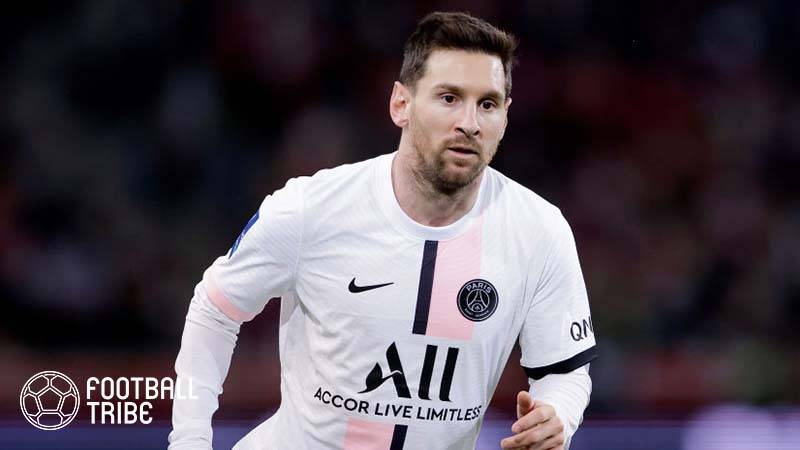
The man has truly achieved much in the sport, a fact that no one could ever begrudge him.
Yet for all that he has attained seemingly so effortlessly and so superfluously with the other-worldly moves orchestrated by his magical feet and the sublime ethereal feints of his diminutive body, the current national team conundrum is a blotch that will stigmatize the CV of La Pulga, should Argentina not prevail against Mexico this Sunday.
Ninety minutes are all it takes for the player whom many regard as the GOAT to contain Mexico and save the world for the entire Argentine nation. 90 agonizing minutes to keep the national dream alive besides perhaps lifting up one naughty finger cheekily to chastize the critics who had unfairly marked him down all these long years for the failures of a nation.
After all, how could one man be held accountable personally for the nation’s infertility?
The bold, brazen achievements at Barcelona that rocked the world – the goals, the Golden Boots, the Champions League triumphs, the GOAT stature behind it all – render unfathomable, in fact senseless, Argentina’s barren run on the global arena in the Lionel Messi period. Only one 2021 Copa America, the first trophy in 28 years, to show for his genius? Surely this is an affront on his football divinity, especially considering the fact that it is his own countryfolk, the sons and daughters of Argentina, are the culprits surreptitiously questioning his greatness.
Yesterday marked the somber two-year anniversary of Diego Maradona’s death. A day when Messi was again held up to the still brightly burning flame of Argentina’s other football legend.
Yet, in the surreal ambience that prevailed, there were more questions about Don Diego than Messi in Argentina’s media conference ahead of the Mexico game.
“It’s a sad day for everybody,” said coach Lionel Scaloni.
“We hope to bring joy if he is looking from the sky. It seems unbelievable he is not here with us. Hopefully, tomorrow will be a happy day.”
A sentiment echoed by Lautaro Martinez in full sobriety: “He was a very important person in the world of global football, not just Argentina. We have extraordinary memories of him.”
Scaloni, to his credit, exercised prudence in not developing any Messi angle. For him it was all about the team and made only one careful reference to his captain:
“He is training well, feeling well. More than ever we need everyone, his team-mates.”
This could very well be not only Messi’s last appearance, but his last meaningful match, on the world stage, even if it might sound a tad too sensitive to verbalize. And the fact that there is a kind of tacit collective understanding that Messi is central to everything in any club or national context – a fact that is often better left unmentioned lest it damages the importance of the rest of the team or squad – inevitably adds that much more weight on his infinitely broad shoulders.
Maradona’s standard has somehow always been the yardstick Messi has been held against simply because both legends are Argentinian, an injustice that diehard Messi fans will always rally against. Not wanting to tarnish in any way his great legacy, the fact that the former even has the benign fortune to be placed in the same stratosphere as Messi should be a great testament that the former legend ought to be pleased with.
Argentinians, and eternal Maradona fans, essentially rate both the former Napoli legend and Messi largely on the former’s 1986 World Cup achievements that gave him his pre-eminence. Argentina’s winning of the World Cup that year against Germany in the final would not have been possible had the ‘Hand of God’ goal been disallowed – as it rightly should have been had it not been for the fact that the referees did not see the infringement by Maradona – when Argentina played against a most unfortunate England team in the historic quarter final. Which actually means Maradona would not have had a World Cup trophy and grossly exaggerated World Cup histrionics to fall back on and enhance his reputation as an exemplary footballer.
However – ‘fair’ not being a word in the vocabulary of football – for all that Messi has achieved, any failure of the national team is a stain that would always appear the biggest on the shirt donned by Maradona. And that similar national team conundrum is the one weighing down most heavily on the Argentine skipper now. In other words, Messi is actually playing against the specter of Maradona.
Within the restrictive confines of an earlier legacy of thinking – as opposed to the current one where the club game has long since usurped the international arena – which attaches more weight to international football, the World Cup still represented the apotheosis of the global game then in Maradona’s time. And in powering Argentina to a second World Cup triumph in 1986 – ‘Hand of God’ discounted – Maradona did indeed set a new bar in football entertainment, if one were to be precise, taking into account his hypnotic voodoo dribbles against England and Belgium.
Had Messi’s Argentina got over the line in the 2014 final against Germany, at the Maracana in Brazil of all places, the GOAT argument might have been closed for a hundred years. Whilst Messi holds that status for many outside Argentina, this represents an opportunity to muscle in on Maradona’s central place in the hearts of the people.
So it’s still Mexico or bust for La Pulga at the appropriately-named Lusail Iconic Stadium.
